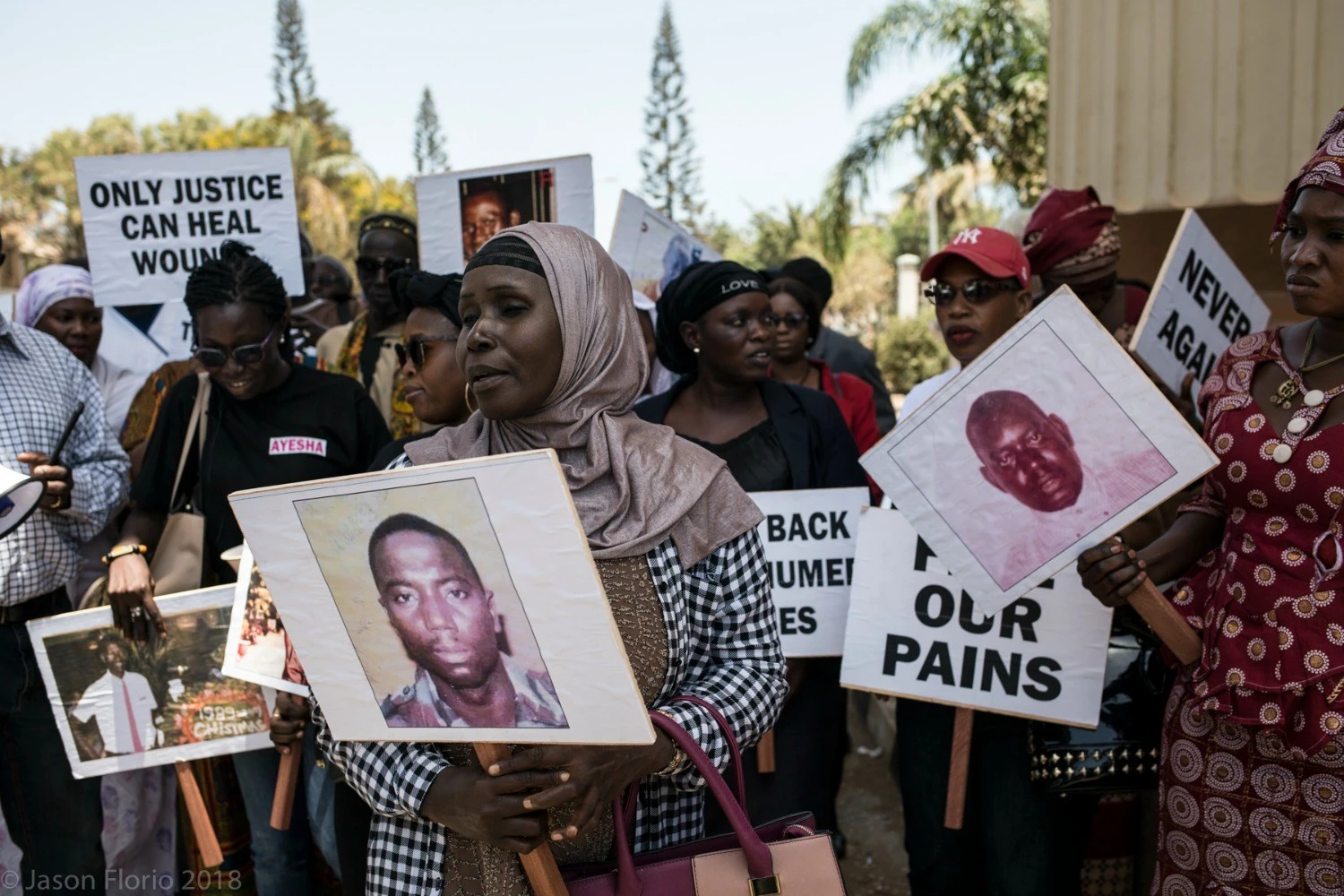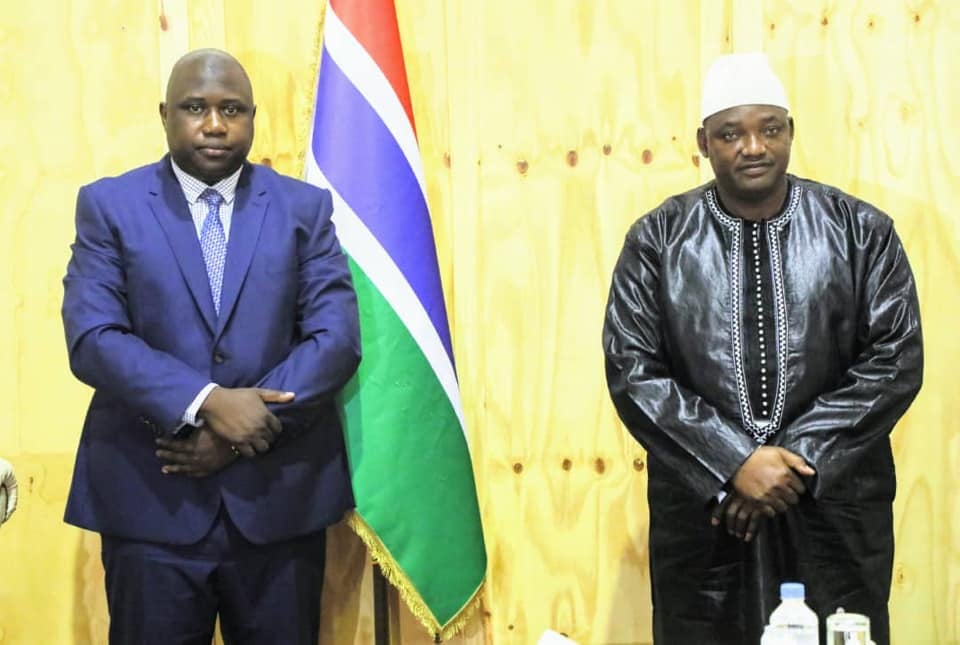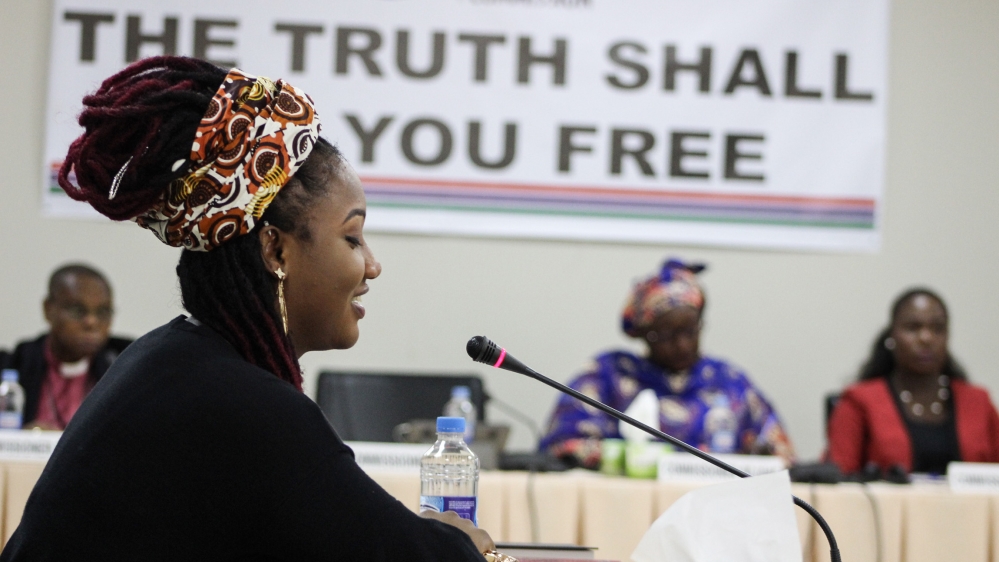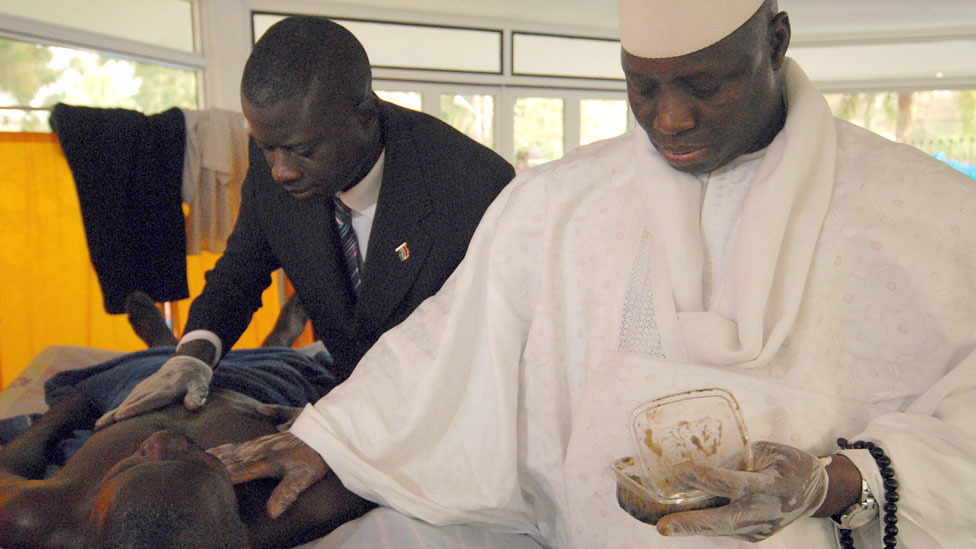8 Children, Dozens Of Women Among Nearly 200 People Unlawfully Killed By Ex-President Jammeh – TRRC
The Gambia’s former president Yahya Jammeh has murdered or unlawfully killed nearly two hundred people during his 22-year rule, the Truth Reconciliation and Reparations Commission (TRRC) reveals in its report made public on Friday. In total though, at least 240 were found to have been murdered by state agents under his rule. But will the Barrow administration implement the report in the face of political considerations?
The inquiry hasn’t provided disaggregated information in terms of sex and age, but as per Malagen’s count, those killed include at least eight children and dozens of women. Some of the children are as young as 3 years old.
Jammeh’s victims range from people perceived to be security threats, his critics, close associates he fell out with and mere ordinary citizens, including student protesters, journalist, and political opponents while others died from his herbal treatment, witch-hunting exercise and presidential convoys.

The Commission recommends that the former president be prosecuted for the murders and unlawful killings as well as the crimes of rape, torture and enforced disappearances that he is found to have committed both directly and indirectly while in power.
“Of course, justice will take place,” Justice Minister Dawda Jallow says on Friday while presiding over the unveiling and presentation of the report to the ‘stakeholders’, including the National Assembly and United Nations.
In attendance was Baba Hydara, the son of murdered journalist Deyda Hydara. He says the findings of the commission are welcome by the victims of what he described as Jammeh’s reign of terror.
“We are very delighted, me and my family,” he says. “Not only me, but also other families as well. We welcome this.”
Gov’t to issue White Paper
Jammeh seized power in 1994, ousting one of Africa’s longest democracies at the time. He introduced a new constitution and returned the country to multi-party politics after two years of transition. But that did not prevent him brutality. His regime was characterised by gross human rights violations.
He lost power through an election in 2016, but refused to hand over power peacefully. He was forcefully removed and sent into exile in Equatorial Guinea where he has since been living.

The TRRC was launched in 2018, barely one year after the new government assumed office. It was mandated to investigate human rights violations that occurred under Jammeh’s reign. After nearly three years of work, including public hearings, the Commission submitted its reports to President Barrow last month.
“Three hundred and ninety-three witnesses testified before the Commission, the majority of which were victims. The witnesses also included self-confessed perpetrators,” TRRC chair, Lamin J Sise, had said in his statement.
The document released on Friday, titled Volume 1: Compendium of Findings and Recommendations, is one of the sixteen Volumes produced by the TRRC and submitted to the president.
The reports lay bare to widespread human rights violations perpetrated by Jammeh’s government, including arbitrary arrests, unlawful detention, unlawful killings, torture, enforced disappearances, sexual violence including rape and castration, and witch hunting.
“After the powerful public testimonies at the TRRC which deeply impacted Gambians, there is an expectation and a demand, both at home and abroad, that the Gambian government will now deliver justice without further delay for victims who have already waited five years, and in some cases much longer. There is still a lot that needs to be done to get there, but I wouldn’t be surprised if we see Yahya Jammeh in a court sooner rather than later,” said Reed Brody, of the International Commission of Jurists, who advises Jammeh’s victims. Brody was instrumental in the prosecution of the former Chadian dictator Hissène Habré.
Other people indicted alongside Jammeh in the various violations include his vice president, cabinet ministers, security chiefs and hit-squad that he set up and nourished.
“We will be studying all the material evidence we have received from the Commission, and on a case-by-case basis, on a recommended charge-by-charge basis we are required to come to a determination as to whether we have got sufficient materials to proceed with the charges in the event the government decides to charge anybody,” Justice Minister Jallow says.
He adds that those named in the atrocities have up to 14 days to apply for amnesty to the TRRC.
He continues: “It is the Commission that will review these applications and recommend to the government in their view and their objective assessment whether or not you are entitled to any form of amnesty, and then the government will act on those recommendations and decide who to grant amnesty or not based on the recommendations we would receive from the Commission.”
For Baba Hydara however, the government White Paper which will state its position on each of the recommendations should ‘send a message that the Gambia is now a country that has rule of law where most of the people that are named will face justice’.
On Nov. 11, 11 people unlawfully killed
Although Yahya Jammeh prided himself for executing a bloodless coup d’état, atrocities against civilians however started almost the day he arrived in office when he rounded up political activists and ex-ministers of the deposed government and subjected some of them to brutal torture.
It did not take long before killings followed. Barely four months after taking over, Jammeh and his men responded to a countercoup, killing at least 11 military personnel believed to be part of the coup through extra-judicial means while subjecting others to torture.
On what has become known as the November 11 incident, the TRRC holds Jammeh and members of his junta responsible for the unlawful killings and torture and asks the government to prosecute them.
While some of the ‘low-level perpetrators’ who participated in the killings were recommended for amnesty ‘due to their truthfulness and openness during their testimonies to help get to the truth,’ some senior officers, this gesture has not been extended to high-level perpetrators who testified at the TRRC, including vice caption Sanna B. Sabally, defence minister Edward Singhatey and army chief Baboucarr Jatta
Murder of finance minister Koro Ceesay
The Nov.11 killing was followed by the murder on June 24, 1995 of finance minister of the junta, Ousman Koro Ceesay, whose charred remains were found inside his burnt official vehicle in an isolated location.
The evidence accepted by the Commission indicates that Koro was killed ‘to silence him permanently because he was about to expose some unfavorable information about financial management by the Junta in the 1995/1996 Budget Speech. The Junta did not want this exposure as this would damage their public image.’
The TRRC says Koro’s murder was premeditated and holds Jammeh responsible alongside junta members Edward Singhatey, Yankuba Touray and Peter Singhatey and calls for their prosecution, while recommending amnesty for ‘for the low-level perpetrators such as Alagie Kanyi, BK Jatta, Pa Alieu Gomez’ who testified to the crime committed.
2000 to 2010, a bloody decade
After nearly five years of break in targeted killings, the regime resumed acts of atrocities with intense brutality, killing nearly 150 people in ten years, between 2000 and 2010. They include 17 student protesters, 66 West African migrants, journalist Deyda Hydara, 41 victims of witch-hunting exercise, and individuals killed by the junglers.
On April 2000, barely four months into the new millennium when, on the orders of President Jammeh, security forces crushed a student protest, killing a total of 17 people, including 14 students. Children are among those killed, including two 3-year-old boys one of whom was shot in the head, a 10-year-old Burama Badjie of Tallingding and 12-year-old Sainey Nyabally of Dasilameh Village.
The protest was triggered by the death of 15-year-old student Ebrima Barry who was assaulted by fire service personnel and the rape of Binta Manneh, an underaged student by security personnel.
“Some survivors remain in a despicable situation of health for decades,” the report says.
The Commission says Jammeh is responsible for the crimes of rape, torture, and unlawful killing of student protesters and recommends for his prosecution, alongside his vice president Isatou Njie Saidy, army chief Baboucarr Jatta and interior minister Ousman Badjie. Several police and military officers have also been recommended for prosecution or banned from public office, including current head of anti-crime task force, Gorgui Mboob.
By 2004, the killer squad that would carry out nearly half of the unlawful killings was unleashed by Jammeh. Besides killings, the Junglers as they were known, tortured and sexually violated their victims, maiming, raping, and castrating some.
“Defending Jammeh at all costs and carrying out his orders, irrespective of how wrong and unlawful they may be, was integral in the operational psyche of the Junglers…” the report says, highlighting that Jammeh created the group ‘as a killer squad to be used to eliminate his enemies or people he perceived as threats to his rule’.
One of their first victims was prominent journalist Deyda Hydara, who was shot and killed on December 13, 2004.
The Commission says it is convinced by the evidence that Deyda Hydaramight have caused great discomfort for his criticism of Jammeh through his newspaper and his campaign against anti press freedom laws being instituted by the regime. “The Junglers have testified before The Commission and confirmed that they carried out the assassination on Yahya Jammeh’sorders,” the Commission says.
Largest single killing would occur barely one year after the murder of Deyda when security forces rounded up 67 Europe-bound irregular migrants from various West African countries and surrendered them to Junglers who killed all but one. Some were ‘hacked to death, many were driven in a bush in Casamance and executed at point blank range by the Junglers’.
The Commission explains: “Multiple witnesses testified that nothing in their appearance or behavior suggested that they were more than migrants. The police officers who initially arrested them treated them as migrants and obtained their details. They were carrying small travel bags and it became obvious to the authorities that they were not mercenaries and not posing any threat to Gambia’s security.”
According to the Commission, Jammeh gave the orders for the killings of the migrants and should be prosecuted for the murders.
Jammeh would wrap up the first decade of the new millennium by unleashing another terror on the citizens when he embarked on a witch hunting exercise in various parts of the country. At least 41 people have died from it while others were subjected to torture, degrading treatment and sexual violence. Many survivors ‘have been incapacitated and many are still suffering from physical and mental ailments as a result of the concoctions they drank and the terrible treatment meted out against them’.
HIV treatment, convoy kills
In 2007, Jammeh shocked the world when he announced that he had found a cure for HIV/AIDS using herbs. For more than ten years, admitted and administered the herbal concoction on patients of not only HIV, but other conditions he claimed to as well have found cure for, including infertility.
The Commission however says in its findings that the treatment was fake, fraudulent, and bogus as it has endangered the lives of many people living with HIV/AIDS that participated in it, causing the death of at least 41 people.
The Commission recommends for ‘the prosecution of Jammeh and Dr. Tamsir Mbowe for intentionally and knowingly causing the death of patients, who were conscripted in the sham PATP and deprived of life-saving treatment’.
The presidential convoy also claimed some lives, especially children who would gather around as Jammeh threw biscuits from his speeding convoys.
Jammeh rapes girls
The Commission’s findings reveal that besides killings, sexual violence was widespread throughout Jammeh’s 22-year rule. And on his orders, security personnel, especially Junglers raped and sexually harassed women perceived as being opposed to him and rejected his sexual advances.

“Sexual violence was often perpetrated either as the main objective of certain human rights violations or it was used as an instrument of repression, torture and punishment,” the report says. “Across The Gambia, females were disproportionately affected by violations including sexual violence, torture, inhumane and degrading treatment, arbitrary arrests, detention and forced labour.”
One instance cited by the report was when Jammeh instructed the Junglers to give ‘full treatment’ to a woman whose identity has been protected by the Commission. And the Junglers raped her.
Not just his senior government officials, including senior security officials and government ministers were subjecting women and girls to a range of sexual violence with impunity. The Commission says there is evidence that Jammeh himself committed the crimes as he raped beauty contestants Fatou (Toufah) Jallow and protocol girls.


